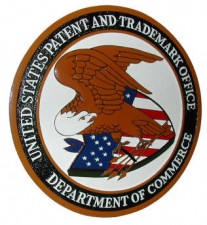 Technology analysis group Canalys recently released a report that reveals that the rocket-like growth of Google’s Android smartphone software has not slowed. Android has surpassed all predictions and is still growing fast, and now has a 48% market share. Microsoft and Apple have banded together to purchase huge patent portfolios in an attempt to find an excuse to sue Google and force them to charge for the platform that they provide for free, to make it more expensive and thus make them look more price competitive.
Technology analysis group Canalys recently released a report that reveals that the rocket-like growth of Google’s Android smartphone software has not slowed. Android has surpassed all predictions and is still growing fast, and now has a 48% market share. Microsoft and Apple have banded together to purchase huge patent portfolios in an attempt to find an excuse to sue Google and force them to charge for the platform that they provide for free, to make it more expensive and thus make them look more price competitive.
The Canalys report shows the market share of various mobile platforms is:
- Android: 48%
- iOS (Apple): 19%
- Samsung: 16%
- Windows Phone 7: less than 1%
The internet marketing world is keeping a close eye on the growth and dominance of smartphones, due to the swiftly rising trend of people using mobile devices to access the web, as we examined in our Mobile Whitepaper.
If you can’t beat ’em, sue ’em
Microsoft, Apple, and Oracle are teaming up to sue Google for patent infringement. Of course first they need patents, and in pursuit of that spent some $4.5 billion to acquire patent portfolios including hundreds and thousands of broadly worded patents that could conceivably cover every behavior on the internet (and it’s worth noting that dozens or hundreds of other patents all cover exactly the same things). Google did participate in the bidding, and bid $3.14159 billion — or Pi.
Google’s Chief Legal Officer just posted a rant about this at the Google Blog.
The principle behind the attempts at litigation seem slightly different for the different players. Microsoft’s primary goal — explicitly stated by them — is to force Google to charge licensing fees for the Android platform, which Google currently provides for free. The lack of cost for their platform gives Android an economic advantage over the competition, allowing OEMs to produce lower-priced phones. Microsoft wants Google to have to charge for Android so their own platform doesn’t look expensive in comparison — though of course they also wouldn’t mind collecting a cut of that licensing for the world’s leading platform.
Apple’s intent seem more targeted at what they feel is actual infringement — though copyright infringement might be more accurate, as they’re claiming that Android OEMs heavily copied the iPhone’s look. The Android marketplace is also incredibly similar to Apple’s, only more open and allowing competition. Of course it may be difficult to litigate on the concept of selling third party upgrades online being their innovation.
Of course let’s not forget Apple’s origins: concepts like a graphic interface, the mouse, and networked computers were all directly taken from a Xerox prototype; and years later Microsoft directly took those from Apple for Windows.
State of Patents
Ultimately there are two major obstacles to the litigation that powerhouses Apple and Microsoft are bringing against powerhouse Google: the first is that the US patent law is in a state of total disaster where software is concerned (the patent office used to refuse to patent software, until congress made them): on average each piece of computer or internet behavior has 30 separate patents held by 30 different people claiming ownership of it — including such “inventions” as storing information online, or automatically backing up information.
This has led to “patent trolls” — companies whose sole purpose is to acquire many of these duplicate patents for the sole purpose of suing other companies. NPR recently ran a fascinating story of their investigation into the software patent situation, called When Patents Attack.
Large tech companies try to protect themselves from patent trolls by acquiring massive patent portfolios themselves, so they hold the same patents that other companies hold. Large companies literally spend billions of dollar acquiring patents for the sole purpose of having a defensive arsenal of patents that match all the other broad software patents out there.
The second barrier that Microsoft and Apple must overcome is regulatory concerns: US law frowns on the practice of acquiring patents solely for anti-competitive means. After all patents are supposed to encourage innovation, not suppress it. So when a company as big as Microsoft is spending billions to buy patents for the sole purpose of suing and suppressing a competitor, the government is likely to take notice.
Personally, I think the best thing that can come out of this lawsuit is to bring more scrutiny onto the horrible software patent situation, and hopefully spark some action on the part of the government to clean it out and bring patents back to doing what they’re supposed to do — and maybe the government will learn to pay more attention to the patent office in the future, and not try to backseat patent approve.






